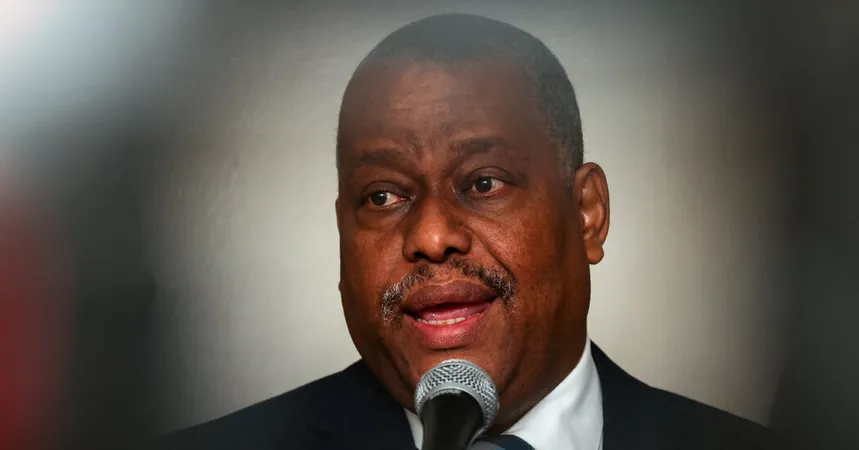
Chaos in Haiti: Prime Minister Ousted as Violence Soars - What's Next for the Nation?
2024-11-11
Author: Chun
Introduction
In a shocking development that deepens the crisis in Haiti, the ruling council has dismissed Prime Minister Garry Conille, a former United Nations official, amid escalating violence and gang control disrupting the nation. Conille's removal comes as the country grapples with a dire security situation, characterized by rampant kidnappings and murders.
Prime Minister Garry Conille's Background
Initially appointed in late May, Conille, a 58-year-old medical doctor and former UNICEF director for Latin America, was charged with navigating the nation through a gang-dominated landscape and steering it toward elections in the coming year. His leadership was viewed with hope by the international community, crucial for Haiti's financial support. However, internal political conflicts have led to his swift ousting.
New Leadership Under Alix Didier Fils-Aimé
Alix Didier Fils-Aimé, a businessman with a background in the Senate and former president of Haiti’s Chamber of Commerce, has been named as Conille's successor. His rise to power underscores a growing trend where political figures with ties to business are stepping in amid instability.
The Absence of Elections and Growing Chaos
Haiti has not seen elections since the assassination of its last president in July 2021, leaving a significant power vacuum. The previous prime minister, Ariel Henry, was forced to resign earlier this year after escalating gang violence made it impossible for him to return from an overseas trip. Thousands are displaced as gangs take control over large parts of the capital, Port-au-Prince, where they target police stations, hospitals, and other essential services.
Political Maneuvering and Criticism
Critics of Conille’s dismissal suggest it was a politically motivated maneuver, especially given that the ruling council may have exceeded its authority—power to remove a prime minister typically rests with an elected Parliament, which Haiti currently lacks. Conille's contentious relationship with the council had been evident from the beginning, marked by conflicts over cabinet appointments and accusations regarding council members' corruption.
Humanitarian Crisis
Further complicating matters, recent reports by the United Nations indicate that parts of Haiti are facing famine-like conditions, with an alarming number of deaths reported—nearly 4,900 people lost their lives between January and September 2023, a figure that surpasses all of last year’s death toll. A massacre in Pont-Sondé last month highlighted the severity of the situation, with over 100 victims.
Conclusion
The political instability and gang influence seem to be entwined, feeding off each other and making any resolution increasingly difficult. Haiti continues to fall deeper into chaos, with the latest events posing serious questions about what lies ahead for the beleaguered nation. Will the new prime minister manage to stabilize the government, or will the cycle of violence and political strife continue? Stay tuned as we monitor this unfolding crisis.




 Brasil (PT)
Brasil (PT)
 Canada (EN)
Canada (EN)
 Chile (ES)
Chile (ES)
 España (ES)
España (ES)
 France (FR)
France (FR)
 Hong Kong (EN)
Hong Kong (EN)
 Italia (IT)
Italia (IT)
 日本 (JA)
日本 (JA)
 Magyarország (HU)
Magyarország (HU)
 Norge (NO)
Norge (NO)
 Polska (PL)
Polska (PL)
 Schweiz (DE)
Schweiz (DE)
 Singapore (EN)
Singapore (EN)
 Sverige (SV)
Sverige (SV)
 Suomi (FI)
Suomi (FI)
 Türkiye (TR)
Türkiye (TR)